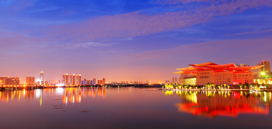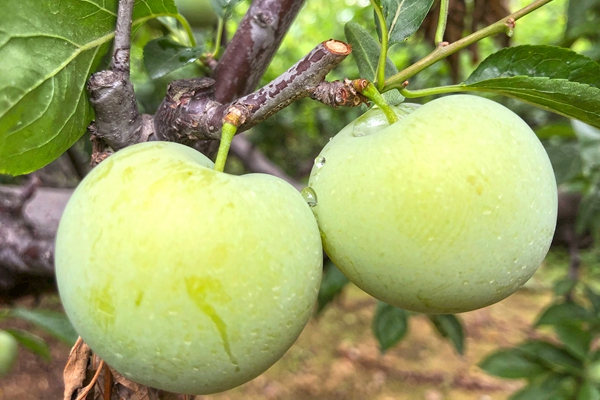Visiting Suzhou
Updated: 2014-07-22
Suzhou is located in the center of the Yangtze Delta, in the south of Jiangsu Province, with Shanghai to the east, Zhejiang Province to the south, Wuxi City to the west and the Yangtze River to the north. Since 42% area of the city is covered by water, including a vast number of ponds and streams, Suzhou is praised as the 'Oriental Venice'. Taihu Lake, four fifths of which is in the territory of Suzhou, is one of the four largest fresh lakes in China, with East Hill, West Hill and other scenic spots in its vicinity. The city is cut by the Beijing-Hangzhou Grand Canal from north to south. Together with its mild climate, making it an available destination all year round, fertile landscape and abundance of produce, it is no wonder that Suzhou is called 'paradise on earth'.
Built in 514 BC, Suzhou is an ancient city with a 2500 years' history. The unique characteristics of the past are still retained in present-day Suzhou. The double-chessboard layout of Suzhou, with 'the streets and rivers go side by side while the water and land routes run in parallel', are preserved basically intact. Strolling the streets, you can feel the unique lingering charm of this landscape left by its long history.
As the saying goes - 'Gardens to the south of Yangtze River are the best in the world, and Suzhou gardens are the best among them'. These gardens attain their high reputation not only for their vast numbers, but also for their charming natural beauty and harmonious construction. At present more than 60 gardens are kept intact in Suzhou, and a series of them have been listed in the World Heritage List, including the Humble Administrator's Garden, the Lingering Garden, the Garden of Master of Nets and the Mountain Villa with Embracing Beauty.
Rating alongside these classical gardens are the exquisite water townships in Suzhou. Zhouzhuang, Mudu, Tongli Town and so on should not be missed by any visitor. In any water township of Suzhou, a number of Ming and Qing dynasty preserved buildings can be found. The natural sights and human landscape enhance each other's beauty, which is a great attraction to visitors who linger there.
Being the cradle of Wu Culture, Suzhou plays a vital role in Chinese cultural history. Many great names and schools of art arose here. For example, the Wumen Fine Arts School is the finest in the history of Suzhou, represented by Shen Zhou, Wen Zhengming, Tang Yin and Qiu Ying, whose poems, calligraphy and paintings are considered to be historical artifacts. Pingtan, Kun Opera and Suzhou Opera are praised as 'three flowers' in the cultural history of Suzhou. Furthermore, embroidery, fans and brocade produced in Suzhou are noted world wide. If you want to explore more on their history visit the museum of Suzhou folk-costume for a complete description.
As one of the famous tourist cities in China, Suzhou has made a great improvement to its basic facilities and tourist functions. Suzhou is accessible by plane, train and bus. Star-rated hotels with good services and reasonable guesthouses and hostels provide a range of lodging. Of course, tasting local delicacies should not be forgotten in your journey. Authentic Suzhou cuisines and snacks can be found in Guan Qian Street, where delicious food and friendly service are memorable. When night falls, Suzhou City is quiet and peaceful. You can enjoy it while sipping a cup of tea in any teahouse.
Charitable community and ancestral temple
Taiping Heavenly Kingdom Ordnance Factory Ruins
Site of the Xunfu Yamen (public official’s office)
Taicang’s five Yuan Dynasty bridges
Baimajian Longchi Scenic Resort
Tel:0510-81178873
E-mail:haiyulu@163.com


